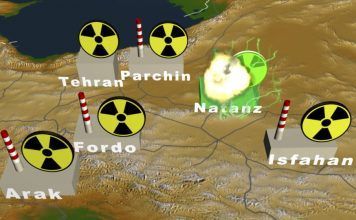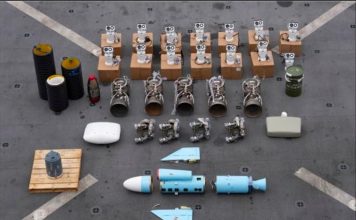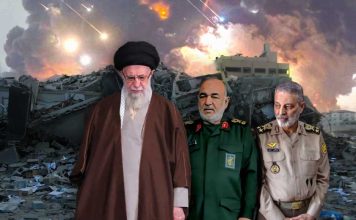By Kayhan Life Staff
The Majlis (Iranian Parliament) may ban all South Korean goods from entering Iran if the country refuses to pay the $7 billion it owes for the oil it bought before the U.S. in April 2019 canceled sanctions waivers on all Iranian oil imports, Mohsen Alizadeh, a member of the Economic Committee of the Majlis has warned.
Mr. Alizadeh, who represents the Sepidan electoral district in the southwestern province of Fars, made the comments in an interview with the Tasnim news agency on July 30.
“Iranian officials must stand firm during the negotiations to protect the country’s interests. We have been successful in our approach to the issue, given that South Korean officials are ready to discuss a payment plan,” Alizadeh said. “The Majlis will fast-track a double-urgency bill to ban all imports from South Korea, should the country ignore its financial obligations to us.”
“I am certain that the deputies will pass the bill quickly, given the Majlis’ current mood,” Alizadeh added.
The suggestion to impose sanctions on South Korean goods has been met with fierce opposition in the past, because most people involved in importing electronics, cars, and industrial parts from the country are well connected to the Iranian regime and do not wish to see any disruption in their lucrative businesses.
In comments reported by the Tehran-based Borna News last month, Hossein Tanhaei, the chairman of Iran and South Korea Chamber of Commerce, said: “South Korea owes Iran between $6.5 billion and $9 billion in unpaid oil imports.”
After months of negotiations, South Korea finally agreed to ship $500,000 worth of medicine to Iran as partial payment for its oil import from the country, the Iranian Students News Agency (ISNA) reported in late May, citing South Korean Kwangju Broadcasting Corporation (KBC) TV.
Speaking to the Iranian Diplomacy news website late last month, Abdolreza Farji-Rad, the Islamic Republic’s former ambassador to Norway, said: “South Korea is not the only country guilty of diplomatic misconduct. Japan has also behaved in the same way. Both countries promote America’s agenda in East Asia, given they need the support of the U.S. forces in the region.”
“South Korea acts under pressure from the U.S.,” Fajr-Rad added.
Fajr-Rad urged the government to file a claim with an international tribunal but cautioned Tehran against starting a diplomatic row with Seoul because it could hurt the livelihood of the Iranian people.
In comments reported by the semi-official Fars news agency on July 30, the Iranian Foreign Ministry’s public relations office said: “The government is taking legal actions against South Korean banks.”
“South Korea would be just like North Korea without America’s help,” Fereydoun Majlisi, an expert on international relations, said in an interview with ISNA on July 27. “South Korea is a staunch supporter of America. Filing a claim with international tribunals will yield no results, because politics, not justice, determine the outcome of any legal proceeding.”
“The Government of Prudence and Hope’s Blunder Has Resulted in South Korea to Freeze Iranian Assets,” was the headline of the Tehran-based Javan online newspaper on July 30. “The coronavirus pandemic and U.S. sanctions have resulted in the rial’s devaluation. Freezing Iranian assets has only exasperated the situation.”
The paper argued that the crisis could have been averted if President Hassan Rouhani’s government had been more “careful in its dealings with countries under the control of the Western Bloc.”
Citing the recent wide-reaching trade agreement with China, as an example of a fair deal with a foreign country, the paper said: “The 25-year contract with China is a good start for establishing a reciprocal international economic relation.”
Meanwhile, senior Iranian officials continue to argue that the U.S. campaign of “maximum pressure” against Iran has failed. However, there is plenty of evidence to the contrary. Even political observers close to the Islamic Republic regime believe that most U.S. allies will soon take their cues from Washington.
South Korea will, in all likelihood, never pay the money it owes Iran. The leaders of the Islamic Republic know all too well that South Korea is committed to furthering the U.S.’s objectives in East Asia. Tehran tried its utmost to develop closer ties with Seoul before the U.S. unilateral withdrawal from the 2015 Joint Comprehensive Plan of Action (JCPOA), better known as the Iran nuclear deal.
Meanwhile, the Islamic Republic’s relationship with the Gulf states, including Saudi Arabia, the United Arab Emirates (UAE) and Bahrain has deteriorated significantly in recent years. The UAE was Iran’s second-largest trade partner after China. The trade volume between the two countries has dropped significantly.
Mr. Rouhani and his government are only partly to blame, given that Iran’s Supreme Leader Ayatollah Ali Khamenei has the final say on the country’s domestic and foreign policies.
In his meeting with the visiting former South Korean president Park Geun-Hye in May 2016, Khamenei said: “The relationship between Iran and South Korea should not be influenced by the hostile policies of the U.S. Fortunately, South Korea has a proper and friendly government.”
In April 2017, Ms. Park was arrested and charged with abuse of power, bribery, coercion, and leaking government secrets. The Central District Court in Seoul sentenced Park to 24 years in prison and a fine of nearly $17 million. In August 2018, her prison sentence was increased to 25 years.
Four years after Park’s visit to Tehran, U.S. sanctions continue to determine the relationship between Tehran and Seoul. In practice, South Korea has not been a friend of the Islamic Republic.
This article was translated and adapted from Persian by Fardine Hamidi.








